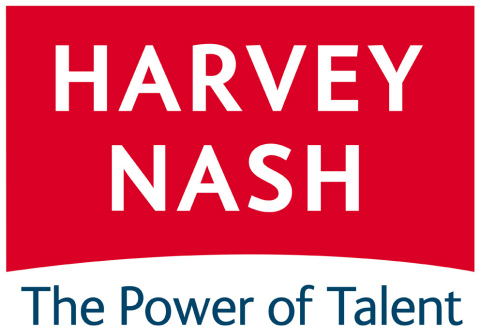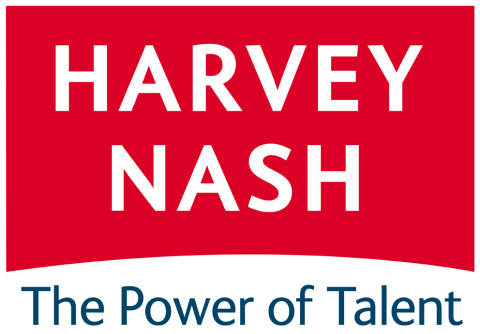NEW YORK--(BUSINESS WIRE)--Two-thirds (64 percent) of organizations are adapting their technology strategies in the midst of unprecedented global political and economic uncertainty, with 89 percent maintaining or ramping up investment in innovation, including in digital labor, and more than half (52 percent) investing in more nimble technology platforms, according to the 2017 Harvey Nash/KPMG CIO Survey, the world’s largest survey of IT leadership.
It is clear digital strategies have infiltrated businesses across the globe at an entirely new level. The proportion of organizations surveyed that now have enterprise-wide digital strategies increased 52 percent in just two years, and those organizations with a chief digital officer have increased 39 percent over last year. To help deliver these complex digital strategies, organizations also report a huge demand for enterprise architects—the fastest growing technology skill this year, up 26 percent compared to 2016.
Cyber security vulnerability is at an all-time high, with a third of IT leaders (32 percent) reporting their organization had been subject to a major cyber-attack in the past 24 months—a 45 percent increase from 2013. Only one in five (21 percent) say they are “very well” prepared to respond to these attacks, down from 29 percent in 2014. Despite recent headline-grabbing cyberattacks, the biggest jump in threats comes from insider attacks, increasing from 40 percent to 47 percent over last year.
“From an organizational and cultural perspective, the CIO is now faced with a full transformation to digital, enterprise-wide,” said Harvey Nash President and CEO Bob Miano. “Digital is without question the CIO’s priority, but especially for legacy organizations, leading this change to a complete, unified digital strategy is top of mind. CIOs and CDOs are responding by tackling this head-on with innovation and agility.”
“In order to stay ahead of the unprecedented levels of disruption and change facing today’s CIOs, they have needed to become more strategic and functionally integrated,” said Denis Berry, KPMG principal and U.S. CIO Advisory leader. “Today’s technology executives need to understand how business models impact their organizations’ infrastructure—not only from a technology standpoint but from an economic, social, political and regulatory one as well, especially in order to stay nimble, adapt to an uncertain climate and truly discover where the opportunities are.”
Now in its 19th year, the Harvey Nash/KPMG CIO Survey is the largest IT leadership survey in the world. Additional findings from the survey include:
Digital leadership has changed
- Almost one in five CIOs (18 percent) report their organizations have “very effective” digital strategies.
- CIOs at these digitally-enabled organizations are almost twice as likely to be leading innovation across the business (41 percent versus 23 percent), and are investing at four times the rate of non-leaders in cognitive automation (25 percent versus 7 percent).
- Overall, the survey found almost two-thirds (61 percent) of CIOs from larger organizations are already investing or planning to invest in digital labor.
CIOs love their jobs, and are more likely to be involved at the Board level
- The number of CIOs who are “very fulfilled” in their role is at a three-year high—rising from 33 percent in 2015 to 39 percent this year.
- For the first time in a decade, more than seven in ten CIOs (71 percent) believe the CIO role is becoming more strategic.
- 92 percent of CIOs joined a Board meeting in the past 12 months.
- However, the CIO life span is just five years or less (59 percent), although many want to stay longer.
Big data/analytics remains the most in-demand skill
- While the fastest-growing demand for a technology skill this year was enterprise architecture, big data/analytics remained the most in-demand skill at 42 percent, up 8 percent over last year.
Risks of project failure
- Weak ownership (46 percent), an overly optimistic approach (40 percent), and unclear objectives (40 percent) are the main reasons IT projects fail.
- More than a quarter (27 percent) of CIOs say that a lack of talent is the cause of project failure.
For more information about the survey and to request a full copy of the results, please visit www.hnkpmgciosurvey.com or email awarren@clearedgemarketing.com.
About the Survey
The 2017 Harvey Nash/KPMG CIO Survey is the largest IT leadership survey in the world in terms of number of respondents. The survey of 4,498 CIOs and technology leaders was conducted between December 19, 2016 and April 3, 2017, across 86 countries.
About Harvey Nash Inc.
Harvey Nash Inc. is the U.S. division of the Harvey Nash Group, a global professional recruitment firm and IT outsourcing service provider traded on the London Stock Exchange since 1997. Harvey Nash has helped over half the world’s leading companies recruit, source and manage the highly skilled talent they need to succeed in an increasingly competitive, global and technology driven world. With 7,000 experts in 43 offices across Europe, Asia and North America, Harvey Nash has the reach and resources of a global organization, and it fosters a culture of innovation and agility that empowers all employees across the world to respond to constantly changing client needs. Harvey Nash works with clients, both big and small, to deliver a portfolio of services: IT recruitment, IT outsourcing/offshoring and executive search. To learn more, please visit www.harveynashusa.com. Follow us: www.twitter.com/harveynashusa and www.facebook.com/harveynashusa.
About KPMG LLP
KPMG LLP, the audit, tax and advisory firm (www.kpmg.com/us), is the independent U.S. member firm of KPMG International Cooperative (“KPMG International”). KPMG International’s independent member firms have 189,000 professionals, including more than 9,000 partners, in 152 countries.




